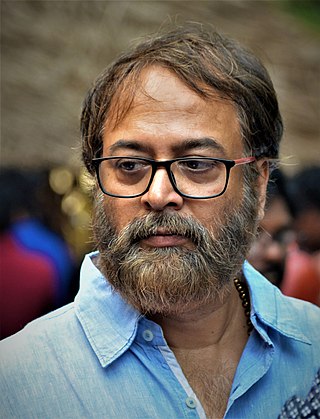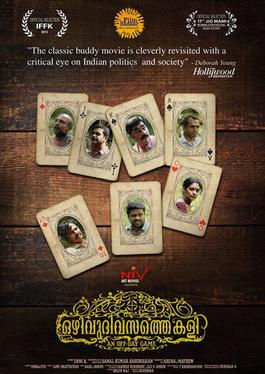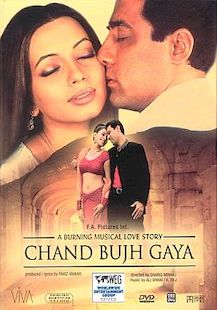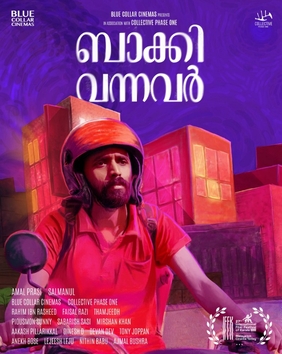
Malayalam cinema is the segment of Indian cinema dedicated to the production of motion pictures in the Malayalam language, which is widely spoken in the state of Kerala and Lakshadweep islands of india based in Kochi.Malayalam cinema includes the commercial film industry, sometimes known as Mollywood, as well as independent cinema made in Malayalam.

Shaji Neelakantan Karunakaran, better known as Shaji N. Karun, is an Indian film director and cinematographer. His debut film Piravi (1988) won the Caméra d'Or – Mention d'honneur at the 1989 Cannes Film Festival. He was the premiere chairman of the Kerala State Chalachitra Academy, the first academy for film and TV in India and was also the executive chairman of the International Film Festival of Kerala (IFFK) from 1998 to 2001. He is best known for his award-winning films Piravi (1988), Swaham (1994), Vanaprastham (1999) and Kutty Srank (2009). He won the National Award for Best Director for his debut film Piravi. He also won two Kerala State Film Awards for Best Director for his films Swaham and Vanaprastham. Currently, he is the Chairman of Kerala State Film Development Corporation.

The Central Board of Film Certification (CBFC) or Censor Board of Film Certification is a statutory film-certification body in the Ministry of Information and Broadcasting of the Government of India. It is tasked with "regulating the public exhibition of films under the provisions of the Cinematograph Act 1952." The Cinematograph Act 1952 outlines a strict certification process for commercial films shown in public venues. Films screened in cinemas and on television may only be publicly exhibited in India after certification by the board and edited.

The International Film Festival of Kerala is a film festival held annually in Thiruvananthapuram, the capital city of Kerala, India. This film festival started in 1996 and is hosted by the Kerala State Chalachitra Academy on behalf of Department of Cultural Affairs, Government of Kerala. The festival is held in November or December every year and is acknowledged as one of the leading cultural events in India.

Madhupal Kannambathu is an Indian actor, director, and screenwriter who works in Malayalam cinema. Madhupal made his acting debut with Kashmeeram in 1994 and his directorial debut with Thalappavu (2008), which was about Arikkad Varghese and won several awards in 2008.

The city of Thiruvananthapuram has been the centre of cultural activities of Kerala (India) from the time it was made capital of Travancore in 1745. The capital city is a major intellectual and artistic center. The Thiruvananthapuram Museum and Thiruvananthapuram Zoo were started during the reign of Swathi Thirunal (1813–1847) and are one of the oldest of their kind in India. The city's libraries include the Thiruvananthapuram Public library, which was started in 1829. The Swathi Thirunal College of Music and 'College of fine arts' are the leading institutions related to music and arts.

Ananth Narayan Mahadevan, also credited as Anant Mahadevan, is an Indian screenwriter, actor, and film director of Hindi and Marathi as well as Tamil Films and television shows. Having been an integral part of the Indian television serials and Hindi films since the 1980s, he is also involved in the professional English and Hindi theatre. He is the recipient of Maharashtra State Film Awards.

Kerala State Motion Picture Academy is an autonomous non-profit institution based in Trivandrum, working under the Department of Cultural Affairs, Government of Kerala. It was founded in August 1998 for the promotion of cinema in Kerala, considering that cinema is the most popular art form in the state. The academy was first of its kind in India; it was formed on the basis of the Karant committee report (1980), which proposed the formation of a national film academy. Under the leadership of T. K. Ramakrishnan, The Minister for Cultural Affairs appointed Shaji N. Karun as its first chairman.

Thalappavu is a 2008 Malayalam language period thriller film based on the events related to Naxal Varghese and Police Constable P. Ramachandran Nair, directed by Madhupal and written by Babu Janardhanan. The film sympathetically portrays the social and political issues of the Naxalite era of the 1970s in Kerala. The film's cast includes Prithviraj Sukumaran, Lal and Atul Kulkarni. Produced by actor Mohan under the Civic Cinema banner and distributed by Lal's Lal Release, Thalappavu marks actor-cum-writer Madhupal’s directorial debut.

Karmayogi is a 2012 Malayalam film directed by V. K. Prakash, starring Indrajith, Nithya Menon, Padmini Kolhapure, Saiju Kurup, Ashokan, Thalaivasal Vijay and Manikuttan. The film's screenplay is written by Balram Mattannur. It is an adaptation of Shakespeare's Hamlet. Indrajith plays the protagonist in the film.

Papilio Buddha is an Indian film written and directed by Jayan K. Cherian. The film focuses on the atrocities committed against Dalits, women, and the environment. It features S. P. Sreekumar, David Briggs, and Saritha Sunil while Padmapriya, Prakash Bare, and Thampy Antony play supporting roles. Kerala-based environmentalist Kallen Pokkudan appears in another important role in the film, which also casts 150 Adivasis. The film was completely shot in Wayanad, Kerala and the cinematography was done by M J Radhakrishnan. The story deals with discrimination against landless Dalits and the politics of suppression of their struggle against the upper castes and other powerful elements locally.
Cherian Joseph, popularly known as Prem Prakash is an Indian actor who predominantly works in Malayalam television serials and a producer in Malayalam movies. He is mainly known for supporting roles and character roles. He has produced 19 Malayalam films. He is known as Kariachan amongst his family, friends and cinema circles.

Neha Mahajan is an Indian actress and model known for her works predominantly in Marathi and Hindi films, in addition to Marathi theatre. Mahajan made her debut in 2012, with the English-language Canadian-British production Midnight's Children directed by Deepa Mehta.
Neha Nair is an Indian playback singer and composer. Her debut was a duet with Job Kurian in the film Ritu, with music composed by Rahul Raj. She is a guest singer in the Malayalam rock band Avial.

Unto the Dusk is a Malayalam film directed by Sajin Baabu as his first feature project in Malayalam. The film stars first-timers Prakruthi Dutta Mukheri, Shilpa Kavalam, and Sanal Aman.

Sanal Kumar Sasidharan is an Indian poet, lawyer, and filmmaker.

Ozhivu Divasathe Kali is a 2015 Indian Malayalam indie drama film directed by Sanal Kumar Sasidharan, based on the short story of the same name by Unni R. The film follows five middle-aged men who get together for a booze party during an election holiday in Kerala. It won the 46th Kerala State Film Award for Best Film. The film was included in The Hindu's top 25 Malayalam films of the decade and is widely regarded as one of the defining movies of the Malayalam New Wave.

G Kutta Se is a 2015 Indian drama film made in Haryanvi and Hindi language. The film stars Rajveer Singh, Neha Chauhan, Rashmi Singh Somvanshi, and Nitin Pandit in leading roles. The film is based on a true story.

Chand Bujh Gaya is a 2005 Indian Hindi-language drama thriller film directed by Sharique Minhaj in his directorial debut and featuring Faisal Khan and Shama Sikander in leading roles. The film is set against the backdrop of the 2002 Godhra train burning. Both the Central Board of Film Certification (CBFC) and its appellate authority, the Film Certificate Appellate Tribunal (FCAT) refused to grant a certificate to the film. The film was released only after the Bombay High Court quashed the decisions of CBFC and FCAT.

Baakki Vannavar is a 2022 Malayalam film directed by Amal Prasi and starring Salmanul in the lead role. The film was premiered at the International Film Festival of Kerala (IFFK) in Thiruvananthapuram in December 2022. The film through the main character, represents a replica of an average Malayali Man, fresh out of college without a proper job. The movie also stars Anekh Bose, Lejeesh Mani, Faeez Muhammed, Ansu Sabu, Rehas Muhammed, Anandhu Madhu, Nithin Babu, and Mirshan Khan. Baakki Vannavar was also selected for the Indian Film festival of Melbourne. The film is backed by Filmmaker Rajeev Ravi, backed by his Collective Phase One team members.


















